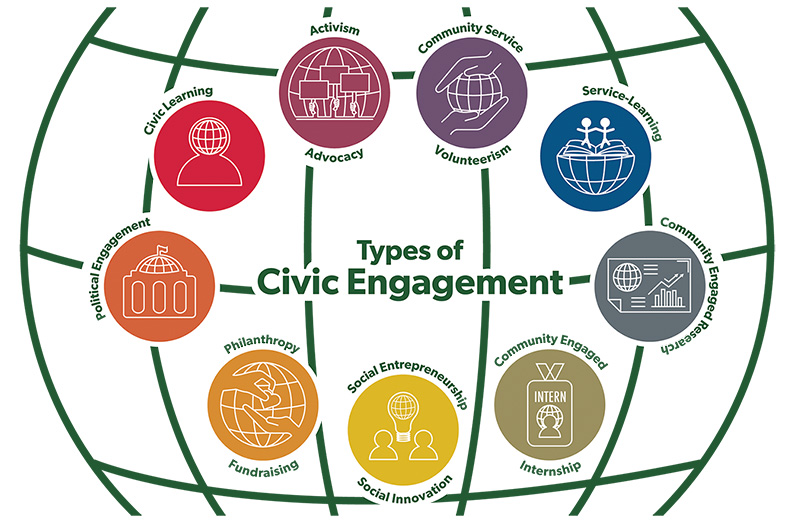—Our civic duties do not end when we cast our votes
IN Guyana, the election season is taken very seriously by Guyanese. Election Day is also often seen as the final stop after a long season of campaigning, inking fingers and casting votes. Many of us leave the polling stations believing that we’ve done our part in performing our civic responsibilities. I am writing this column piece to enlighten you that voting is not the end of one’s civic responsibility. In fact, it is just the beginning. It is the days, weeks, and months after the elections that are most crucial for shaping community, promoting peace, and ensuring transparency in higher offices. On Election Day, when we cast our ballots, we perform an act of selecting who we would want to govern the country, but this is not enough. We also have to uphold civic engagement, which requires active participation.

Voting beyond the ballot means showing up to those town hall meetings, even when participation is low or the media is not present. It is when we volunteer with our local Town Councils or Neighbourhood Democratic Councils when they need help. It means reading, understanding, and commenting on local policies and agendas to advocate for better reform. It is when we use our voice and our own unique skills to have respectful conversations about community challenges and change. You see, many of us do not look into the mirror and ask what we can do to create change as well. We often forget that, as citizens, we also have power in our voices and our decisions. As such, it is not only about casting a vote, but also about ensuring that our vote counts and that those who govern our communities are held accountable for the decisions that affect our everyday lives.
Democracy in a country works best when its citizens are as active as policymakers and politicians. As an old Guyanese would say, “it is a two-way street”. The overall system works more efficiently when all of us are actively involved, because only then will our true concerns be heard and hopefully addressed. Our civic engagement after the election is not only centred around governance or decision-making. It can also extend into many other areas — from volunteering for social causes that promote cohesion, to participating in your town anniversary events, gathering community members for a clean-up campaign, offering support for small-scale projects such as repainting a pedestrian walk-way in front of a local school, and even offering mentorship to young people who may need extra guidance. Community work is never at a halt, is ever evolving, and is always needed.
I would like to take this opportunity to acknowledge that we are particularly vulnerable during an election cycle in Guyana. I know that, by now, many of you are already aware of this, given our history. As such, I urge all policymakers and politicians to keep their words and promises of fairness and accountability during the election cycle. I also want to use this opportunity to remind all Guyanese that the election cycle is not a battlefield. The act of disagreeing is all a part of a democracy. However, there should be no excuse to incite violence. It is during these very fragile times when we need the leaders of our communities to also use their voices. It often pains me to see many religious leaders, community leaders, or local groups stay silent when their community needs them the most. I believe it is their civic responsibility to use their platforms and influence to foster community cohesion and togetherness. Our civic responsibilities, despite our titles or backgrounds, should also not be limited to just the election cycle. This should be an ongoing phenomenon of civic engagement and participation. Community leaders should use their platforms to enlighten people about what it means to live in a democratic society and the importance of opposing views or disagreements in a democratic society all throughout the year.
I hope that, from September onwards, we foster a new election culture in Guyana, where we strive to understand that, regardless of who wins, we must collectively work for the betterment of our nation. Nation-building should not stop simply because of disagreements and differences of opinion. As our country gears closer towards an election, I hope that you keep this article in mind as you cast your vote. While casting your vote gives you power for a day, your active participation and citizenship can collectively allow all of us to have power every single day in our democratic society. Your one, singular action might seem insignificant, but if all of us collectively understand the true power of our citizenry, then all our voices can be amplified for the greater good.



.jpg)








